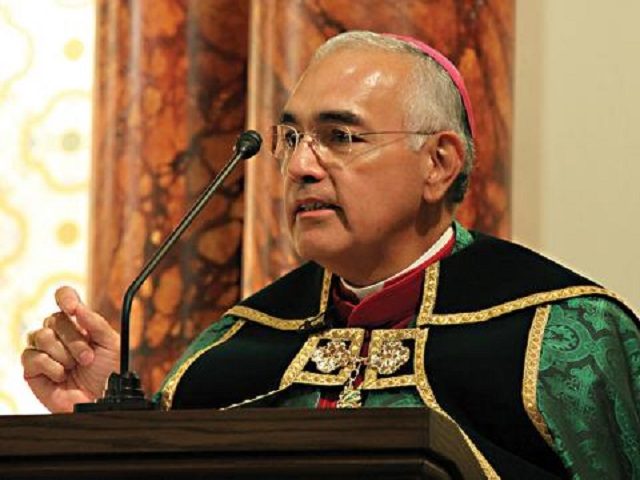Following Monday’s U.S. Supreme Court ruling that allows much of President Trump’s travel ban to go immediately into effect, the chairman of the U.S. Bishops’ Committee on Migration released a statement expressing grave concerns over the ruling.
The decision reinstates a 90-day ban on people entering the United States from six countries identified as seedbeds of international Islamic terrorism, if they “lack any bona fide relationship with a person or entity in the United States,” as well as allowing a 120-day ban on all refugees entering the United States.
On January 27, 2017, President signed Executive Order No. 13769, Protecting the Nation from Foreign Terrorist Entry Into the United States, which stated that “the United States must ensure that those admitted to this country do not bear hostile attitudes toward it and its founding principles.” To allow for a full revision of the visa-issuing process, the President called for a temporary halt to entries from “Countries of Particular Concern.”
In his statement Monday, Bishop José “Joe” Vásquez, the Chair of the of the U.S. Bishops’ Conference (USCCB) Committee on Migration, lamented that the decision “will have human consequences.”
“While my brother bishops and I appreciate the Court’s ruling to allow individuals who have a ‘bona fide relationship’ with a person or entity in the United States to continue arriving, we are deeply concerned about the welfare of the many other vulnerable populations who will now not be allowed to arrive and seek protection during the proscribed pause, most notably certain individuals fleeing religious persecution and unaccompanied refugee children,” he said.
Bishop Vásquez also urged that “civil society and refugee service providers” be brought into the review process along with national security and immigration experts. “We believe it is vital to utilize the full expertise of the existing resettlement program when conducting such an important evaluation,” he said.
The USCCB tweeted the statement by Bishop Vásquez:
Bishop Joe Vásquez, Chair of Bishops’ Committee on Migration, Responds to Today’s #SCOTUS Action on #TravelBan: pic.twitter.com/hQ6I8iLow7
— US Catholic Bishops (@USCCB) June 26, 2017
Although Monday’s ruling was not the final word on the travel ban, President Trump embraced it as “a clear victory for our national security.”
“As president, I cannot allow people into our country who want to do us harm,” he said in a written statement. “I want people who can love the United States and all of its citizens, and who will be hardworking and productive.”
Earlier this year, Pope Francis declared that every country has the right to secure its borders for the sake of the safety of its citizens.
In a lengthy interview with the Spanish daily El País, the Pope reaffirmed Catholic doctrine regarding immigration, namely, that sovereign nations have the fundamental right to maintain secure borders and to receive immigrants in an orderly and controlled fashion.
“Yes, every country has the right to control its borders, who comes and who goes,” Francis said last January, “and those countries at risk —from terrorism or such things— have even more right to control them more.”
The one qualification to this right, the pontiff continued, is that “no country has the right to deprive its citizens of the possibility to talk with their neighbors,” as often has occurred in the case of totalitarian states such as East Germany, Cuba and the U.S.S.R.
The Pope has made it clear on a number of occasions that he does not believe in illegal immigration, and that states must maintain secure borders for the safety of their citizens. At the same time, he has often insisted that individuals as well as nations should keep their hearts open to people who migrate from their homelands in search of a better life.
Follow Thomas D. Williams on Twitter Follow @tdwilliamsrome

COMMENTS
Please let us know if you're having issues with commenting.